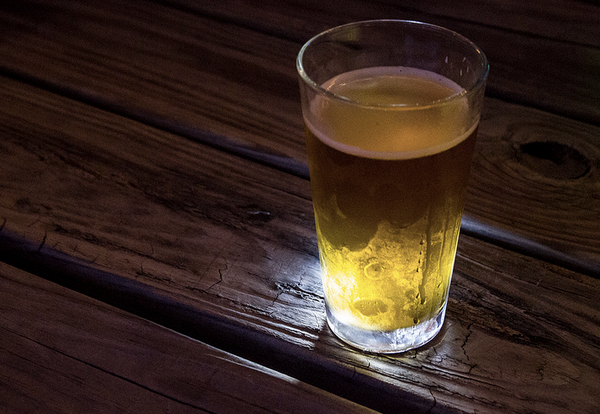Anheuser-Busch Distributor Incentive Program Raises More Concerns Of A Stifled Craft Beer Market

(jayRaz)
With its $107 billion merger with SABMiller making waves and federal regulators investigating its purchase of several small distributors, one might think that Anheuser-Busch InBev would lay low when it comes to rocking the distribution boat. But that’s apparently not the case, as the company recently unveiled an incentive program that would provide distributors with a sliding scale of bonuses if most of the beer they sell comes from the brewer.
The Wall Street Journal reports that the incentive program, aimed at reversing a decline in sales, could provide as much as $1.5 million in reimbursements to independent distributors if 98% of the beers they sell come from AB InBev.
If a company’s sales volumes are made of 95% AB InBev brands – like Budweiser, Bud Light and recently acquired craft beers from Golden Road and Goose Island – they would be eligible to have as much as half of their marketing support for the products — promotions and display costs — covered by the beer giant, according to distributors who spoke with the WSJ.
AB InBev has reportedly already told its network of 500 distributors, and others, that they would qualify for the incentive program as long as craft brewers they carry produce less than 15,000 barrels or sell beer only in one state.
When AB InBev announced the three-year plan at a meeting last month, the company estimated that participating distributors would receive an average of $200,000 in benefits annually.
“We are focused on improving our offerings for consumers, and our new voluntary incentive program better equips wholesalers to compete in the future,” Ricardo Melo, Anheuser-Busch vice president of sales strategy and wholesaler development, tells the WSJ in a statement.
While Melo emphasized that the program is voluntary, and that distributors could sell less than 95% of its products and still be eligible for benefits, some in the beer industry claim the plan would stifle craft brewers’ ability to bring products to market under the current distribution system.
As it stands, the U.S. has a three-tier distribution system where brewers must sell beer to distributors, who then pass on the goods to retailers, which finally sell to consumers.
According to the National Beer Wholesalers Association, most of the country’s beer distribution flows through companies with agreements to either sell AB InBev or MillerCoors brands.
Lagunitas Brewing Co. founder Tony Magee, who recently sold half of his stake in the company to not-entirely-small Heineken, tells the WSJ that the incentive program could persuade distributors to hold back on craft-beer sales, for fear that pushing the products would put them over the edge for reward eligibility.
Other small brewers expressed the same concerns, noting that the plan could prevent new beers from entering the market entirely.
The company is “basically saying ‘We would like to shut down a massive pillar of the United State distribution system to craft,” Nikos Ridge, the founder of Ninkasi Brewing Co., tells the WSJ, adding that craft brews from AB InBev’s own brands would still easily make it on the market.
Oregon-based Deschutes Brewery says it’s already been dropped by one distributor because it “had to make a choice to go with the incentive program or stay with craft.” The distributor in question did not return comment to the WSJ.
The incentive program comes at a time when AB InBev is already taking heat for its disruption to the distribution market.
In October, the Justice Department, along with California regulators, announced they were investigating allegations by craft brewers that AB InBev pushes its recently acquired distributors in California, New York and Colorado to sever ties with the smaller beer companies.
Sources close to the matter say the investigation, which is in early stages, was initiated after smaller brewers raised concerns that AB InBev’s purchase of distributors made it more difficult for them to distribute their brews, leading to stalling sales.
Since then, the beer behemoth formalized its deal to purchase No. 2 brewer SABMiller, which would bring along its own roster of distributors.
And while the sheer size of the combined AB InBev-SABMiller company is a point of consternation for anti-trust experts, the distribution list is equally troublesome.
Diana Moss, president of the American Antitrust Institute, told Consumerist earlier this year that part of the motivation for the mega-merger could be a desire by the companies to control the arm of the beer business that essentially provides consumers with choice.
“A merged ABI-SABMiller would be a more powerful ‘gatekeeper’ of the critical distribution channels that craft brewers need to get their products onto retail shelves, jeopardizing the choice, variety, and innovation that consumers benefit from,” she said.
This, of course, isn’t the first time that AB InBev has offered an incentive program – and big bucks – for distributors to favor its products, the WSJ reports.
In 1997, the Justice Department opened a probe into Anheuser-Busch’s system called “100% Share of Mind” that essentially dissuaded distributors from carrying small brands. That case was closed without legal action.
Craft Brewers Take Issue With AB InBev Distribution Plan [The Wall Street Journal]
Want more consumer news? Visit our parent organization, Consumer Reports, for the latest on scams, recalls, and other consumer issues.

